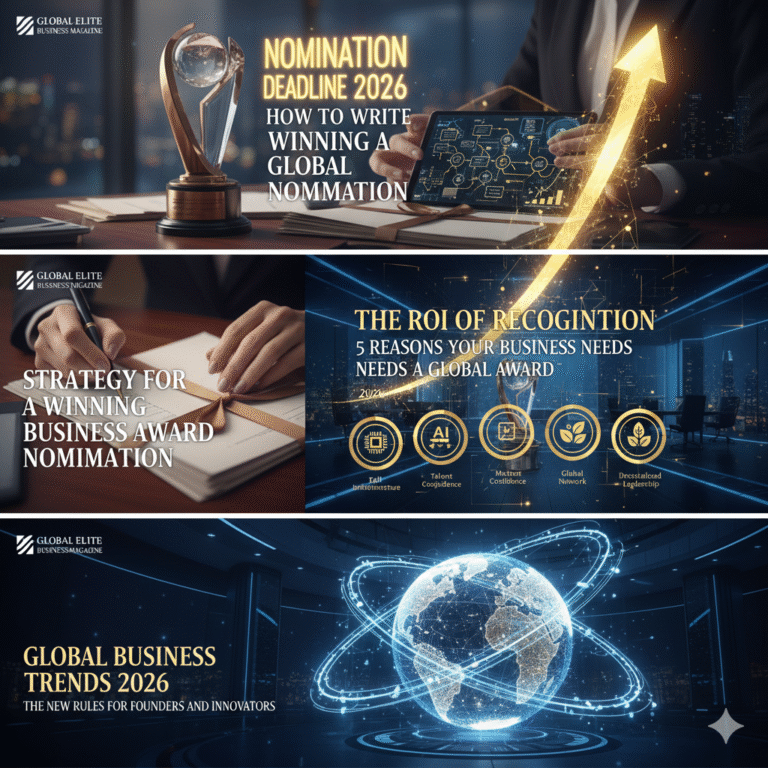
Introduction: The AI Crossroads – Hype vs. Reality
AI is a strategic imperative, with predictions of $40 trillion in global operational efficiencies [Morgan Stanley, 2025]. While many C-suite leaders seek tangible ROI beyond hype, forward-thinking companies are already seeing results. One-third of CEOs report early productivity gains from generative AI impacting profits [Olympus Power Ltd., 2025; Tech Monitor, 2025], with half expecting returns within a year [Olympus Power Ltd., 2025]. Companies embracing AI are outperforming the market [Morgan Stanley, 2025; Accenture, 2021], signaling a shift from experimentation to strategic execution.
AI’s true value extends beyond cost savings, driving new revenue streams, optimizing core functions, enhancing customer lifetime value, and building resilience for sustainable growth. This article reveals how leading executives strategically deploy AI to innovate and monetize, exploring the unified C-suite approach essential for harnessing AI’s full potential. The race for AI monetization is on, favoring leaders who build robust data foundations and foster AI-ready cultures.
The CEO’s Mandate: Strategic AI for New Value Creation
For the CEO, AI is a powerful lever for future growth, moving beyond pilots to embed AI into the business model, creating new value and sustainable growth.
Identifying AI-Driven Business Model Innovation
CEOs explore AI’s potential to disrupt industries or create new ones, powering novel products and services. AI’s ability to accelerate R&D, like reducing drug development from months to minutes [Morgan Stanley, 2025], exemplifies unlocking unprecedented market entry and innovation.
Portfolio Optimization and Risk Management
AI offers CEOs superior capabilities for investment decisions and resource allocation. Predictive analytics help anticipate economic shifts, identify market opportunities, and optimize portfolios. AI also enhances cybersecurity and regulatory compliance, de-risking growth in complex global environments.
Fostering an AI-Ready Culture and Strategic Execution
The shift from AI experimentation to strategic execution is crucial. Nearly 60% of CEOs plan formal AI strategies for 2025 with clear ROI metrics [SBI Growth, 2025]. Addressing challenges like a lack of learning mindset and identifying proven use cases [SBI Growth, 2025], successful CEOs prioritize talent development, upskilling, and ethical AI governance. They reinvest AI-driven productivity gains into value-creating activities, ensuring long-term competitive advantage [SBI Growth, 2025].
The COO’s Engine: Operationalizing AI for Efficiency & Scale
For the COO, AI is a powerful engine for operational efficiency, scalability, and resilience, translating strategic AI visions into measurable gains that impact the bottom line and enable sustainable growth.
Optimizing Supply Chains and Logistics
COOs use AI to revolutionize supply chains, moving to proactive, predictive capabilities. AI-driven solutions provide precise demand forecasting, optimized inventory, and intelligent route optimization, leading to cost reductions and improved delivery. AI also enhances traceability and reduces waste, contributing to sustainability and operational resilience [Accenture, 2025; OperationsCouncil.org, 2025].
Streamlining Processes and Intelligent Automation
AI is a game-changer for efficiency. Through RPA and intelligent automation, COOs automate repetitive tasks, reducing costs and freeing human capital for strategic work. AI-powered analytics identify bottlenecks, enabling continuous process improvement and lean operations at scale [OperationsCouncil.org, 2025].
Building a Robust Data Foundation and AI-Ready Workforce
Successful AI implementation requires a strong data foundation. COOs ensure data quality, accessibility, and governance, breaking down silos [Accenture, 2025; ChiefOperatingOfficer.org, 2025]. They foster an AI-ready workforce by guiding cultural shifts, building trust, and investing in upskilling. This integrated approach avoids “pilot purgatory” and scales AI solutions enterprise-wide [Accenture, 2025; McKinsey, 2025; ChiefOperatingOfficer.org, 2025].
The CMO’s Edge: AI for Hyper-Personalized Growth & Brand Value
For the CMO, AI offers an unprecedented opportunity to deliver hyper-personalized customer experiences at scale, directly contributing to revenue growth and strengthening brand equity. The CMO’s mandate is to harness AI to understand, engage, and convert customers with unparalleled precision.
Hyper-Personalization and Customer Experience (CX)
AI and generative AI revolutionize customer connection. By analyzing vast datasets, AI enables tailored content, dynamic recommendations, and personalized offers, significantly enhancing satisfaction and loyalty, leading to increased engagement and conversions [McKinsey, 2025; ResearchGate, 2024]. From AI-driven chatbots to predictive analytics, CMOs craft seamless customer journeys [iovox, 2025; Castmagic, 2025].
Optimizing Marketing Spend and Proving ROI
CMOs use AI for optimizing marketing spend through advanced attribution, real-time campaign adjustments, and precise audience segmentation [Microsoft, 2025]. This ensures efficient budget allocation, driving higher efficiency and measurable ROI. AI helps CMOs make data-driven decisions impacting the bottom line.
Driving Product Innovation and Brand Reputation
AI empowers CMOs to contribute to product innovation by uncovering unmet customer needs and trends from market data and sentiment analysis [Microsoft, 2025]. This insight informs new product development. AI tools also monitor brand reputation, allowing proactive responses to market perception and building stronger brands.
Beyond Individual Roles: C-Suite Collaboration for Holistic AI Monetization
While individual C-suite contributions to AI monetization are vital, AI’s true power for sustainable growth comes from seamless, cross-functional collaboration. AI initiatives thrive in an integrated ecosystem where data, insights, and goals are shared and aligned.
Establishing Shared Metrics and Integrated Data Strategies
Fragmented AI measurement obscures impact. Leading organizations establish shared metrics and KPIs aligning AI’s contribution with business objectives. This requires breaking data silos and implementing integrated data strategies, with CIOs orchestrating seamless data flow across departments [CIO Dive, 2025; Accenture, 2025].
Fostering Ethical AI and Building Trust
As AI pervades, ethical considerations and trust are paramount. Cross-functional collaboration is essential for robust ethical AI guidelines and governance, ensuring fair, transparent, and accountable systems. Responsible AI deployment mitigates risks like bias and data privacy, underpinning long-term brand value and market acceptance [Wharton AI & Analytics Initiative, 2025; Accenture, 2025].
Continuous Learning and Adaptive Operating Models
The evolving AI landscape demands continuous learning and adaptive models from the C-suite. AI Governance Committees or Centers of Excellence (CoEs) with executive leadership evaluate opportunities, mitigate risks, and guide strategic decisions [McKinsey, 2025; Wharton AI & Analytics Initiative, 2025]. This fosters collective learning, shared insights, and agile adaptation, ensuring organizational competitiveness.
The Path Forward: Actionable Steps for Executives
To truly monetize AI and secure sustainable growth, C-suite leaders need a deliberate, integrated approach. Moving beyond isolated pilots to enterprise-wide transformation requires clear vision, strategic investment, and continuous adaptation. Here are actionable steps:
Start Small, Think Big, Scale Fast
Identify high-impact AI use cases aligned with core objectives for quick, measurable value. Initial successes build sponsorship for wider adoption. Avoid “pilot purgatory” with a clear roadmap for rapid scaling [McKinsey, 2025; Wharton AI & Analytics Initiative, 2025].
Prioritize Data Quality and Infrastructure
AI’s effectiveness depends on data. Executives must champion breaking data silos, ensuring accuracy, and investing in robust infrastructure. This foundation feeds reliable information to AI models, enabling precise analytics and sophisticated applications [SBI Growth, 2025; Accenture, 2025].
Invest in Talent and Foster an AI-Ready Culture
Technology isn’t enough. The C-suite must prioritize upskilling and hiring AI-specific roles. Develop real-world AI training, foster a learning mindset, and build trust. Leaders guide cultural shifts to embrace AI as augmentation, not replacement [SBI Growth, 2025; Accenture, 2025; ChiefOperatingOfficer.org, 2025].
Establish Clear Ethical Guidelines and Governance
As AI grows, so do concerns over bias, privacy, and accountability. Executives must proactively establish comprehensive ethical AI guidelines and governance frameworks, including bias detection and transparency. Responsible AI deployment is crucial for building trust with all stakeholders for sustainable growth [Accenture, 2025; ChiefOperatingOfficer.org, 2025; Wharton AI & Analytics Initiative, 2025].
Embrace Cross-Functional Collaboration and Continuous Adaptation
AI monetization is a team sport. C-suite members must foster seamless collaboration, aligning on shared metrics and goals. Integrated approaches, supported by AI Governance Committees, enable collective learning and rapid adaptation. The ability to pivot quickly and integrate new AI capabilities will define future leaders [CIO Dive, 2025; McKinsey, 2025; Accenture, 2025].
In conclusion, AI is a strategic imperative redefining business. For the C-suite, moving beyond hype means embracing AI as a powerful catalyst for innovation, new revenue streams, and long-term sustainable growth. Leaders who strategically integrate AI, empower teams, and foster responsible innovation will thrive.
Sources
- Accenture. (2021). The Art of AI Maturity. https://www.accenture.com/us-en/insights/artificial-intelligence/ai-maturity-and-transformation
- Accenture. (2025). COOs and AI: Nailing the scale. https://www.accenture.com/content/dam/accenture/final/a-com-migration/manual/r3/pdf/Accenture-COOs-AI-Nailing-Scale.pdf
- Accenture. (2025). Using AI to Empower Cross-Functional Teams. https://www.agilebusiness.org/resource/using-ai-to-empower-cross-functional-teams.html
- Castmagic. (2025). How to Use AI to Make Money: 25 Examples. https://www.castmagic.io/post/how-to-use-ai-to-make-money-25-examples
- ChiefOperatingOfficer.org. (2025). COO’s Guide to AI Implementation. https://www.chiefoperatingofficer.org/ai-implementation-guide/
- CIO Dive. (2025). Tech roles proliferate in the C-suite amid AI adoption push. https://www.ciodive.com/news/C-suite-tech-roles-deloitte/750855/
- iovox. (2025). 6 Applications of AI Personalization in Marketing You Need to Know. https://www.iovox.com/blog/ai-personalization-marketing
- McKinsey. (2025). How COOs maximize operational impact from gen AI and agentic AI. https://www.mckinsey.com/capabilities/operations/our-insights/how-coos-maximize-operational-impact-from-gen-ai-and-agentic-ai
- McKinsey. (2025). The state of AI: How organizations are rewiring to capture value. https://www.mckinsey.com/capabilities/quantumblack/our-insights/the-state-of-ai
- McKinsey. (2025). Unlocking the next frontier of personalized marketing. https://www.mckinsey.com/capabilities/growth-marketing-and-sales/our-insights/unlocking-the-next-frontier-of-personalized-marketing
- Microsoft Industry Blogs. (2025). How CMOs can personalize marketing and optimize spend with AI.






